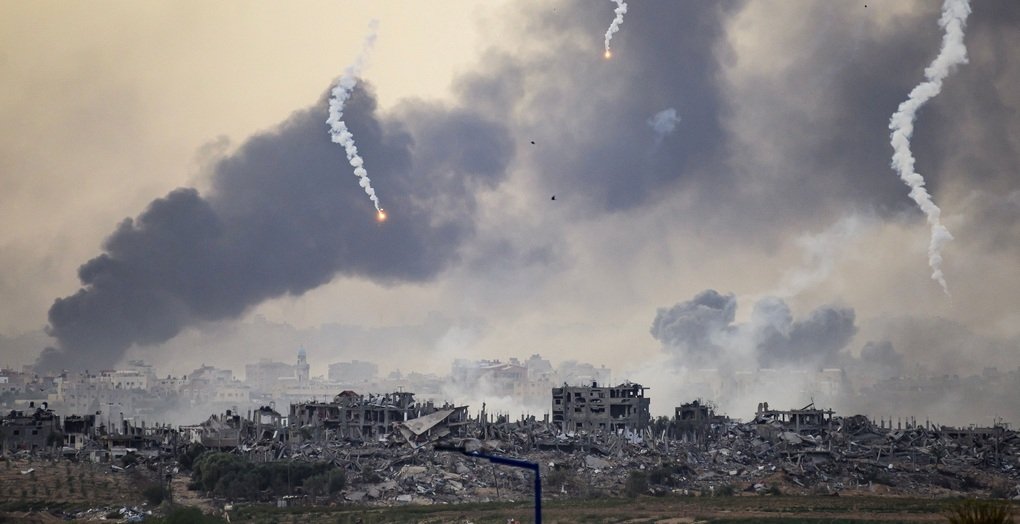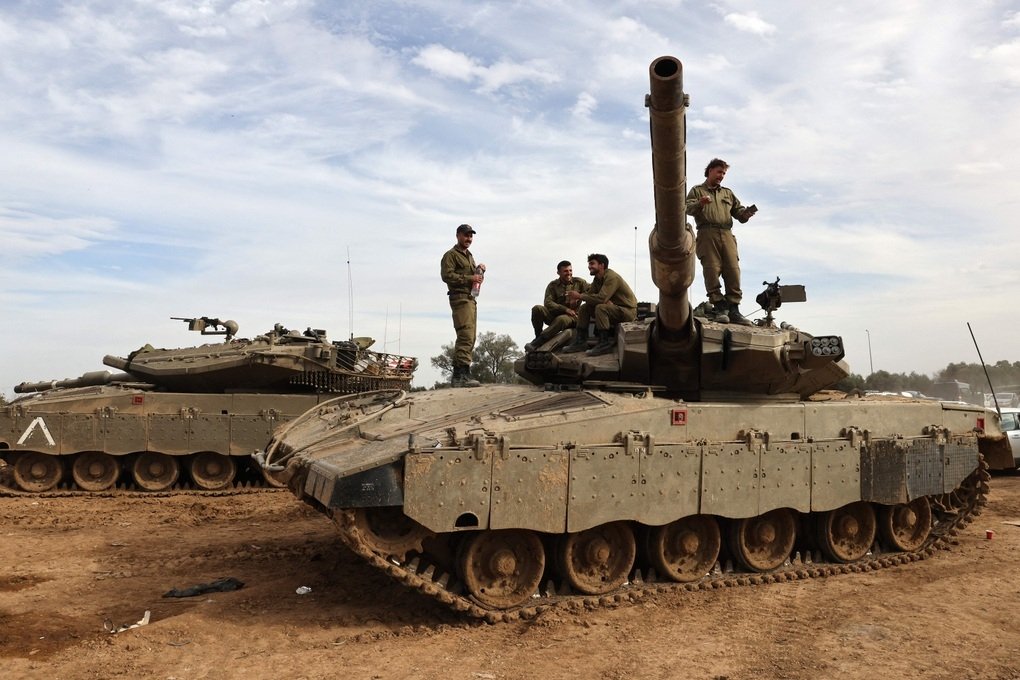(Dan Tri) – Israel feels it must accept the ceasefire agreement but still intends to continue fighting in the Gaza Strip to achieve its goal of destroying Hamas.
Israeli soldiers near the Gaza Strip in southern Israel on November 22 (Photo: AFP/Getty).
The gunfire will stop, food and medicine will reach those in need, and hostages will be exchanged for prisoners.
But the chance of that happening is almost zero.
Israeli Prime Minister Benjamin Netanyahu made it very clear just before his cabinet agreed to the temporary ceasefire agreement.
Mr. Netanyahu’s words disappointed many countries.
The US also called for a temporary ceasefire but knew that fighting would likely continue.
Hope for a long-term ceasefire
Israel’s campaign to eliminate Hamas has alarmed many countries, especially when more than two-thirds of Gaza’s 2.2 million residents had to leave their homes and about 14,000 people died, according to data from the agency.
Hamas killed 1,200 Israelis and kidnapped 240 in an attack on October 7, according to data from the Israeli government.

Image of Israeli hostages held by Hamas on the wall near the Tel Aviv Museum of Art in Tel Aviv on November 22 (Photo: Bloomberg).
As the two sides temporarily stopped fighting, some diplomats expressed hope for something more ambitious.
`I hope that this agreement can be the basis for prolonged silence and then a transition to a truce,` said Prince Faisal Bin Farhan, Saudi Arabia’s foreign minister.
The US has called for humanitarian silence but does not expect the fighting to end quickly.
Washington has told Israel that the large number of Palestinian civilians killed will make the campaign to destroy Hamas more difficult, Bloomberg quoted four anonymous senior US officials.
Doesn’t change the situation
Some Israelis have expressed concern that the four-day ceasefire – which began on the morning of November 23 and could last longer if Hamas releases more hostages – could cause trouble for the country’s military.
Much of Israeli life is essentially frozen.

Smoke rises after an Israeli attack in northern Gaza on November 22 (Photo: AFP/Getty).
The ceasefire agreement signed in recent days is no different from the one Israel rejected a few weeks ago.
The families of the Israeli hostages have effectively lobbied for this issue to take priority over military victory.
Since the Israeli hostages were said to be victims of the government’s failure to protect its borders and citizens on October 7, Tel Aviv saw that it would not be appropriate to turn its back on the agreement and give up the hostages again.
`Those in decision-making power clearly see that they cannot stop,` Yakov Amidror, former Israeli national security adviser, told reporters.
Mr. Amidror admitted that the current silence may allow Hamas to replenish and restore its forces, but that will not change the balance of power or significantly affect Israel’s losses.
Even if a ceasefire goes smoothly in Gaza, it is unclear how this will affect the firefights between Israel and Hezbollah on the border with Lebanon.
